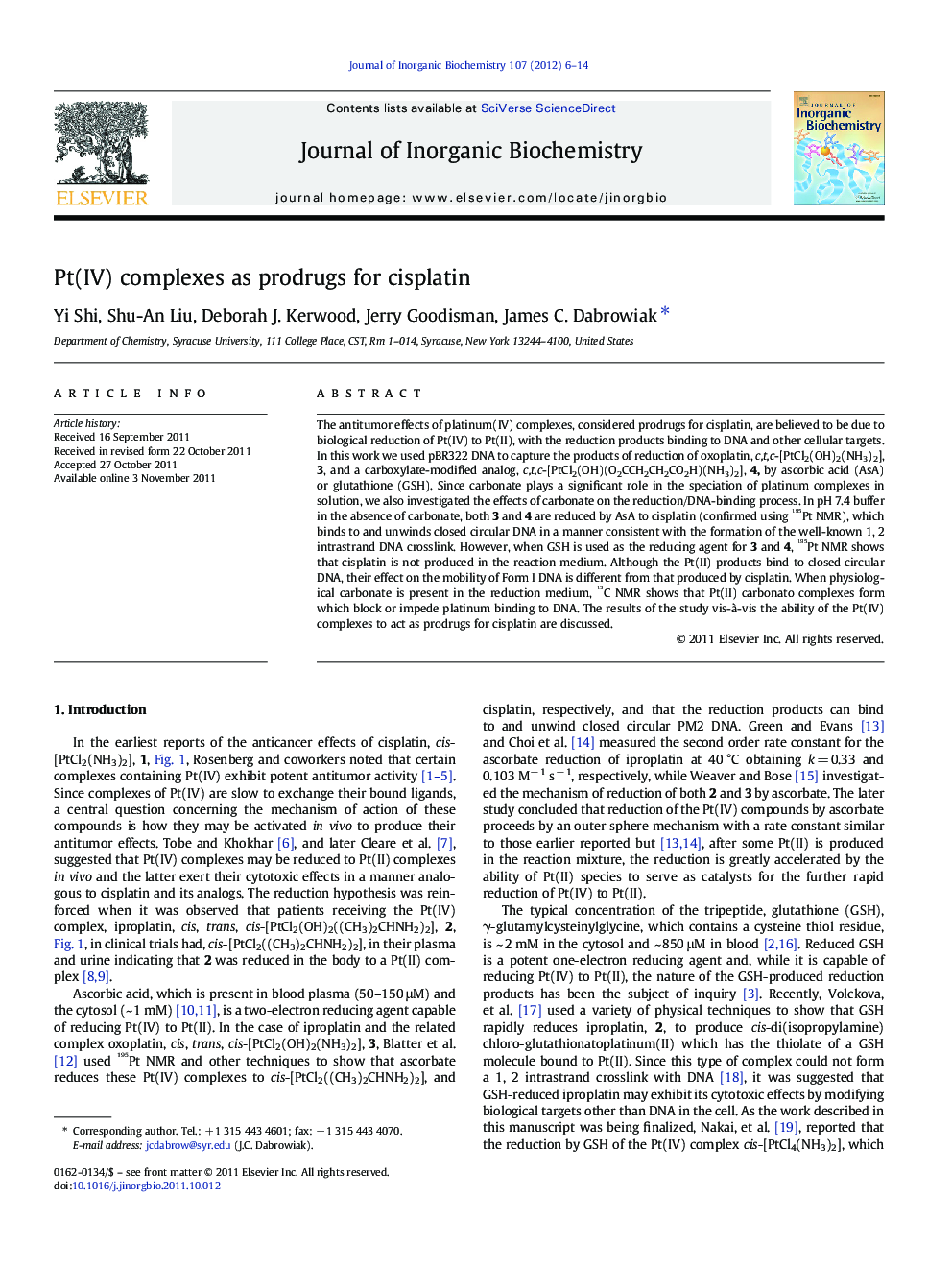| Article ID | Journal | Published Year | Pages | File Type |
|---|---|---|---|---|
| 1317824 | Journal of Inorganic Biochemistry | 2012 | 9 Pages |
The antitumor effects of platinum(IV) complexes, considered prodrugs for cisplatin, are believed to be due to biological reduction of Pt(IV) to Pt(II), with the reduction products binding to DNA and other cellular targets. In this work we used pBR322 DNA to capture the products of reduction of oxoplatin, c,t,c-[PtCl2(OH)2(NH3)2], 3, and a carboxylate-modified analog, c,t,c-[PtCl2(OH)(O2CCH2CH2CO2H)(NH3)2], 4, by ascorbic acid (AsA) or glutathione (GSH). Since carbonate plays a significant role in the speciation of platinum complexes in solution, we also investigated the effects of carbonate on the reduction/DNA-binding process. In pH 7.4 buffer in the absence of carbonate, both 3 and 4 are reduced by AsA to cisplatin (confirmed using 195Pt NMR), which binds to and unwinds closed circular DNA in a manner consistent with the formation of the well-known 1, 2 intrastrand DNA crosslink. However, when GSH is used as the reducing agent for 3 and 4, 195Pt NMR shows that cisplatin is not produced in the reaction medium. Although the Pt(II) products bind to closed circular DNA, their effect on the mobility of Form I DNA is different from that produced by cisplatin. When physiological carbonate is present in the reduction medium, 13C NMR shows that Pt(II) carbonato complexes form which block or impede platinum binding to DNA. The results of the study vis-à-vis the ability of the Pt(IV) complexes to act as prodrugs for cisplatin are discussed.
Graphical abstractIn this study we show that the Pt(IV) complex oxoplatin, and one of its analogs suitable for covalent attachment to a nano-sized delivery vehicle are prodrugs for cisplatin if they are reduced by ascorbic acid but not if they are reduced by glutathione.Figure optionsDownload full-size imageDownload as PowerPoint slide
